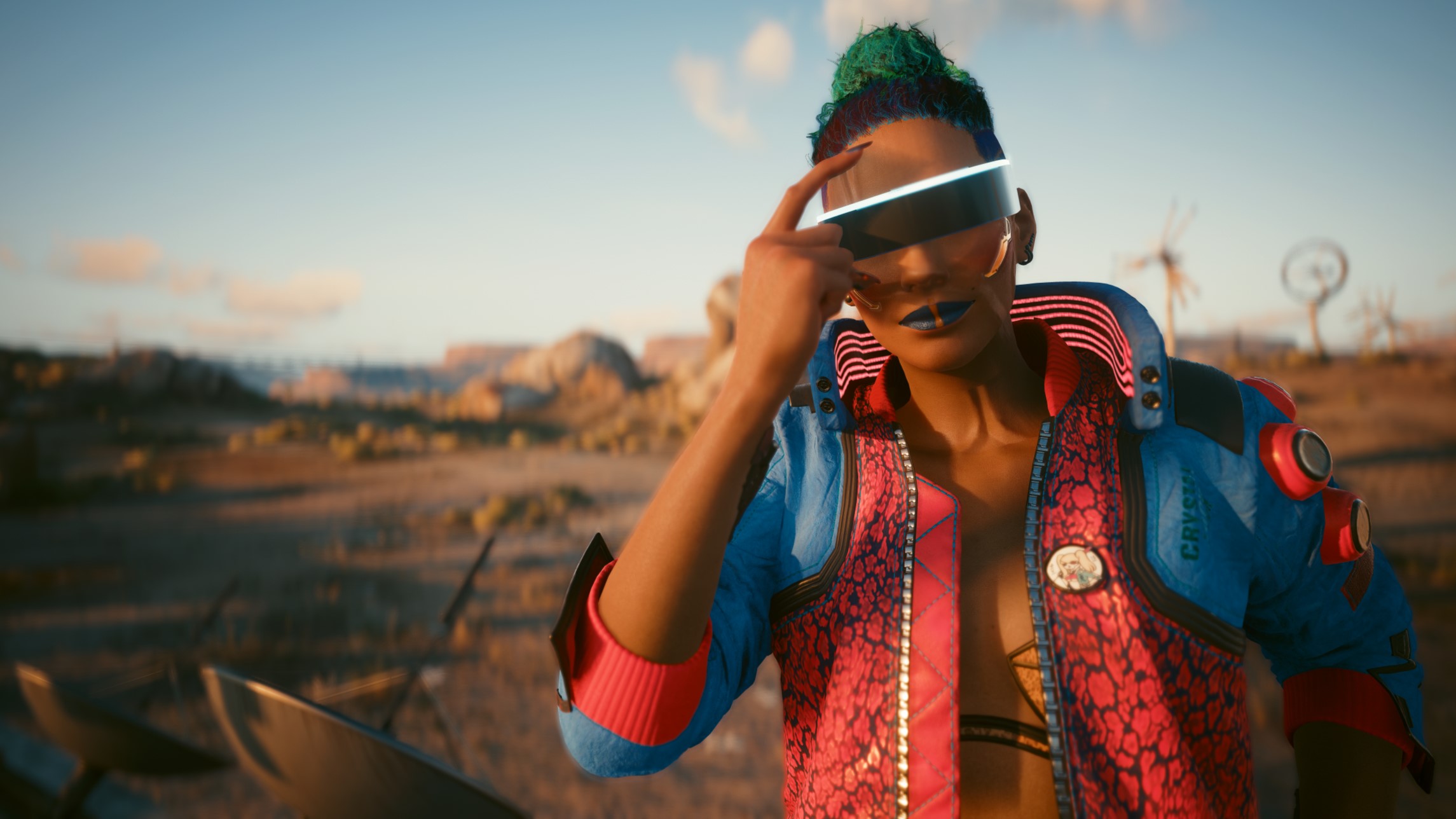CD Projekt's switch to Unreal wasn't motivated by Cyberpunk 2077's rough launch or a 'This is so bad we need to switch' situation, says senior dev
REDengine: Gone but not forgotten.

In an interview with Eurogamer about CD Projekt Red's future, CDPR vice president of technology Charles Tremblay laid out some of the reasoning behind the company's surprise move to Unreal Engine 5 from its in-house REDengine—and it has less to do with Cyberpunk 2077's challenging development and rough launch than you might think.
"The first thing I want to say again, to be sure, 100 percent clear, is that the whole team, myself included, are extremely proud of the engine we built for Cyberpunk," Tremblay said to Eurogamer. "So it is not about, 'This is so bad that we need to switch' and, you know, 'Kill me now'—that is not true. That is not true, and this is not why the decision was made to switch."
Rather than a reaction to Cyberpunk's buggy launch and poor initial reception, Tremblay said that the move was meant to pave the way for simultaneous development of multiple games at CDPR. The studio has three in the can right now: The Witcher 4, codenamed Polaris (which has just entered full production), Orion, the next Cyberpunk game, and an original IP codenamed Hadar.
"The way we built stuff in the past was very one-sided, like one project at a time," Tremblay said. "We pushed the limit—but also we saw that if we wanted to have a multi-project at the same time, building in parallel, sharing technology together, it is not easy.
"The idea was that we can push the technology, we can finally have all the technical people in the company working together on different projects, rather than super centralized into one technology that can very difficultly be shared between other projects."
It makes a lot of sense: A studio developing its own game engine gets the freedom to customize the tools to its exact specifications, as well as the familiarity from having built them from scratch. The risk is that studio has to expend significant resources for both initial development and any subsequent upkeep and upgrades—something alluded to by Skyrim designer Bruce Nesmith when this conversation came up around Bethesda. If something goes wrong with the tech, there's no one else for that studio to turn to for help.
A third party engine significantly frees up a developer's resources, outsourcing upkeep to the engine's licenser (in this case Epic) while also ensuring that there is external customer support in the event of a major issue. The downsides include the potential one size fits all nature of third party tools, the startup cost of switching everything over (also mentioned by Nesmith), and the fact that Epic's own interests will inherently get top priority when it comes to the direction of Unreal's future.
The biggest gaming news, reviews and hardware deals
Keep up to date with the most important stories and the best deals, as picked by the PC Gamer team.
Epic CEO Tim Sweeney has made it clear that he still sees ubiquitous adoption of the Unreal Engine as a path to creating an interoperable metaverse of all projects built using the toolset. Meanwhile, the first wave of third party UE5 games has been a mixed bag on the technical side, with inconsistent performance overall and an epidemic of persistent stuttering issues on PC.
Some of the most impressive games of this generation were built using proprietary engines—particularly Alan Wake 2, which I'd argue is one of the best looking and graphically impressive games around. BioWare's swan song on EA/DICE's Frostbite engine, Dragon Age: The Veilguard, looks great and runs well on a wide variety of hardware—it feels like BioWare is throwing in the towel just as it's finally come to grips with Frostbite, which had previously caused a number of headaches for the studio.
I find myself increasingly nervous about this industry trend away from in-house tools and largely toward Unreal Engine—the expertise and capacity that studios sacrifice to make the change will likely prove difficult to build back up should the bets not pay off. This is all while UE5 has produced dubious results for gamers and its future is seemingly tied to a large-scale project to change how games are made, sold, and experienced.
I also think it's a shame since so much of CDPR's legend was built around the audacious, generation-leapfrogging graphics made possible by the REDengine, the so-called "Slavic Magic" beloved by gaming meme makers and at least one notable developer. But games are games, not engines, and we'll only know if the move was the right one once we finally get Polaris, Orion, and Hadar in our hands. There's reason to be excited: Tremblay also told Eurogamer that CDPR wants Polaris to be a bigger, better, and more ambitious game than The Witcher 3 or Cyberpunk 2077, and that it's being worked on by 400 of CDPR's 650 staff worldwide.
Ted has been thinking about PC games and bothering anyone who would listen with his thoughts on them ever since he booted up his sister's copy of Neverwinter Nights on the family computer. He is obsessed with all things CRPG and CRPG-adjacent, but has also covered esports, modding, and rare game collecting. When he's not playing or writing about games, you can find Ted lifting weights on his back porch.

